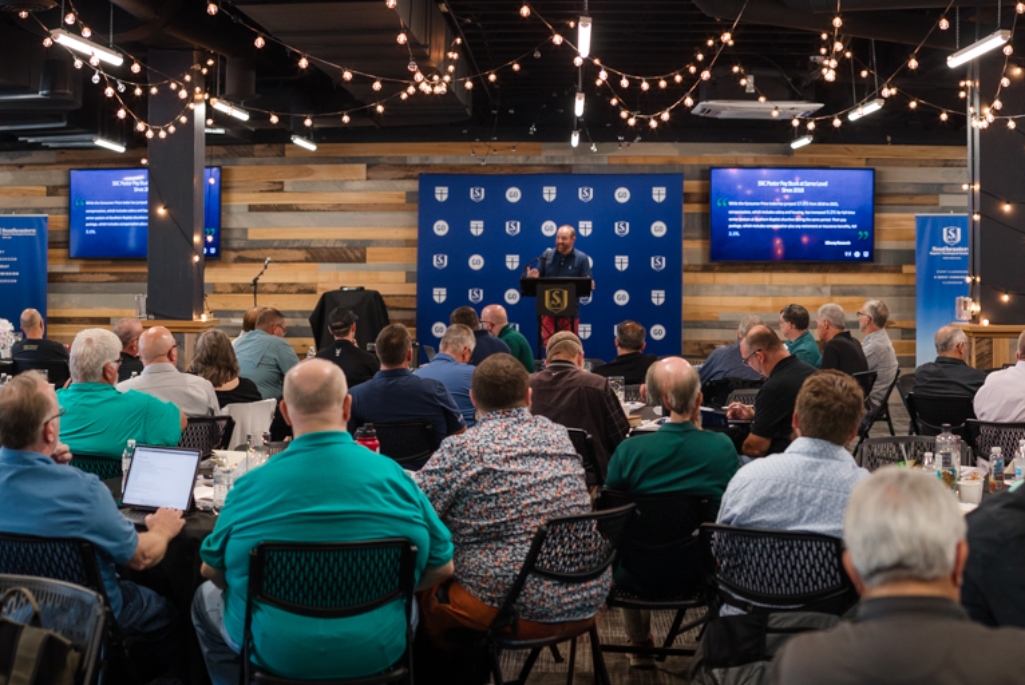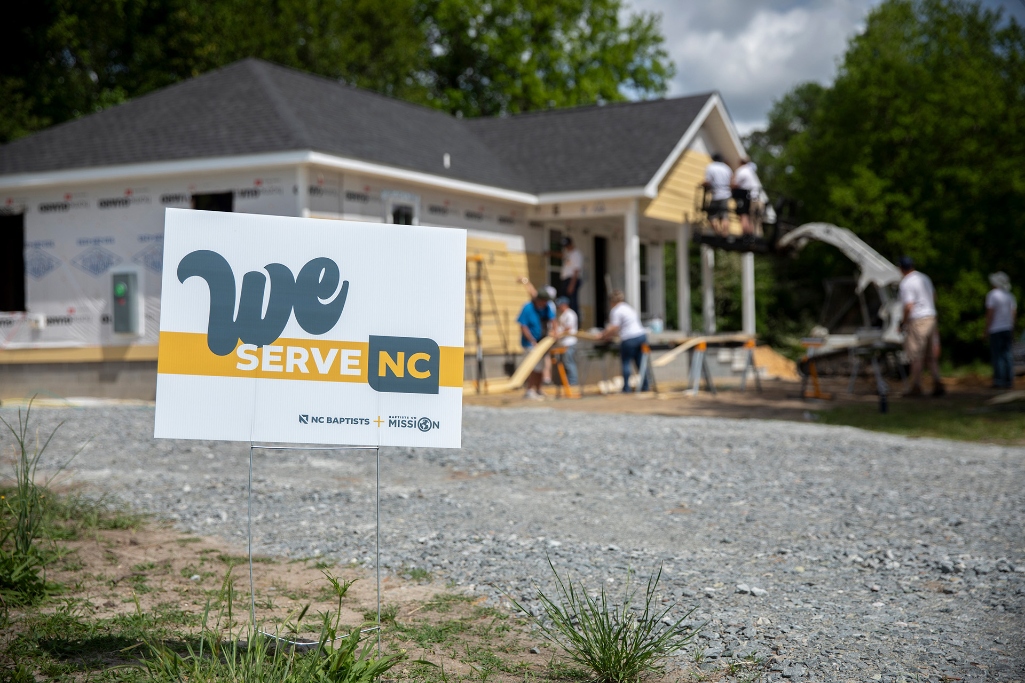
On August 8-9, Southeastern Seminary hosted its fifth annual Associational Mission Strategist (AMS) Conference to encourage and equip associational leaders for ongoing Great Commission ministry. This year’s conference focused on the priority of church renewal not only for addressing church decline in North America but also for developing partnerships to reach communities with the gospel.
As a Great Commission seminary, Southeastern believes that the Church is God’s plan for bringing the gospel to the neighborhoods and to the nations. Being a Great Commission seminary, then, means serving local churches by equipping church leaders to make disciples who make disciples. As an extension of this Great Commission vision, Southeastern’s annual AMS Conference offers AMS leaders opportunities for strategic ministry training and networking with fellow AMS leaders.
“Today’s church recognizes — now as much as ever — the need to network and partner on mission together,” commented Chris Allen, assistant director of church and convention relations at Southeastern. “While the majority of North American churches are plateauing or declining, associational mission strategists are working tirelessly within the local network of churches to encourage church health and church growth. Southeastern’s AMS conference offers these leaders a space to connect and to be encouraged and resourced to persevere in serving our convention of churches.”
Opening the conference on Tuesday, Ronjour Locke, instructor of preaching and urban ministry at Southeastern, offered a devotional from Haggai 2. Charging associational leaders to continue in the work of ministry, Locke reminded attendees that God is building his Church and that what the Church is becoming in Christ will far surpass the former glory days of ministry.
“God has a plan for the church that is in the process of revitalizing,” noted Locke. “The plan for that church is not that it would be like it was but that it would move forward to what it’s going to become. … The question is, ‘Is the church looking more like what it’s going to become when Jesus comes back and we see the bride in all of her radiance and splendor?’”
“Is the church looking more like what it’s going to become when Jesus comes back and we see the bride in all of her radiance and splendor?“
During Tuesday’s first plenary session, Keelan Cook, instructor of missiology and George Liele director of the Center for Great Commission Studies at Southeastern, discussed recent trends and statistics about church decline, demonstrating the need for associational leaders to focus their efforts on church renewal.
“Church renewal is an urgent gospel issue,” commented Cook. “Every opportunity for renewal is an opportunity to reignite gospel witness in a community. It’s a way to demonstrate to the neighborhood where that church is that the gospel is about rebirth.”
Sharing insights from their joint experience with church renewal at Steadman Baptist Church in Lexington, SC, Johnny Rumbough and Neal Smith offered advice on how to help churches through the process of renewal.
In the second plenary session, Rumbough narrated stories from his 27 years as an AMS leader and shared that prayer and trust in the power of God were key to helping churches experience revitalization. In the next session, Smith, who currently serves as pastor of Steadman Baptist Church, reminded attendees that shepherding churches through change involves loving and leading church members with varying levels of commitment to renewal.
Following times for networking and workshopping ministry strategies, President Danny Akin preached from Philippians 2:1-5 on how to work with and lead difficult people. Calling attendees to follow the example and mind of Christ, Akin charged associational leaders to humbly serve the pastors and churches under their care by putting others before themselves. Listing ten biblical principles for engaging well in difficult ministry relationships, Akin provided a running commentary through Philippians 2:1-5 while offering counsel for associational leaders from his personal ministry experience.
On Wednesday morning, Chuck Lawless, dean of doctoral studies and vice president for spiritual formation and ministry centers at Southeastern. offered a brief devotional about finishing well — the topic of his session later that afternoon.
“If finishing well for us means that our names have to be recorded in the story, we will not finish well,” noted Lawless, reminding attendees that God receives the glory for church growth and church renewal. “Finishing well means being okay that Jesus’s name is lifted up and my name is not.”
“Finishing well means being okay that Jesus’s name is lifted up and my name is not.“
During the fourth plenary session, Tate Cockrell, professor of counseling and director of DMin and EdD studies at Southeastern, taught about burnout and compassion fatigue in ministry, helping attendees recognize and biblically address the toll ministry can take on pastors. Cockrell emphasized the importance of making sustainable sacrifices in ministry and prioritizing rest, accountability, and community. Exhorting associational leaders to invest holistically in regional pastors, Cockrell encouraged them to start investing early and often before burnout prompts pastors to leave the ministry.
In the final session, Lawless expanded on the theme of finishing well from 2 Timothy 4:6-8, observing how Paul devoted his life to Christ and finished his race with joy, faithfulness, and endurance. Lawless reminded associational leaders that both they and the pastors they care for need to nurture their passion for Jesus by not only recovering the discipline of evangelism but also making disciples who walk alongside them.
“Nobody finishes well by accident,” commented Lawless, “If you want to finish well, pour your life into somebody else who will watch you and you will want to finish well.”
“The earliest forms of Southern Baptist cooperation were at the associational level,” commented Drew Davis, director of financial and alumni development at Southeastern. “Associations played a large part in the history of Southern Baptist life, and we believe they will play a big part in its future. That’s why we are committed to partnering with AMS leaders across the country as they work to foster Great Commission cooperation within their associations.”
For more information about upcoming AMS events or to learn how you can partner with Southeastern at the associational level, contact Chris Allen at [email protected].


